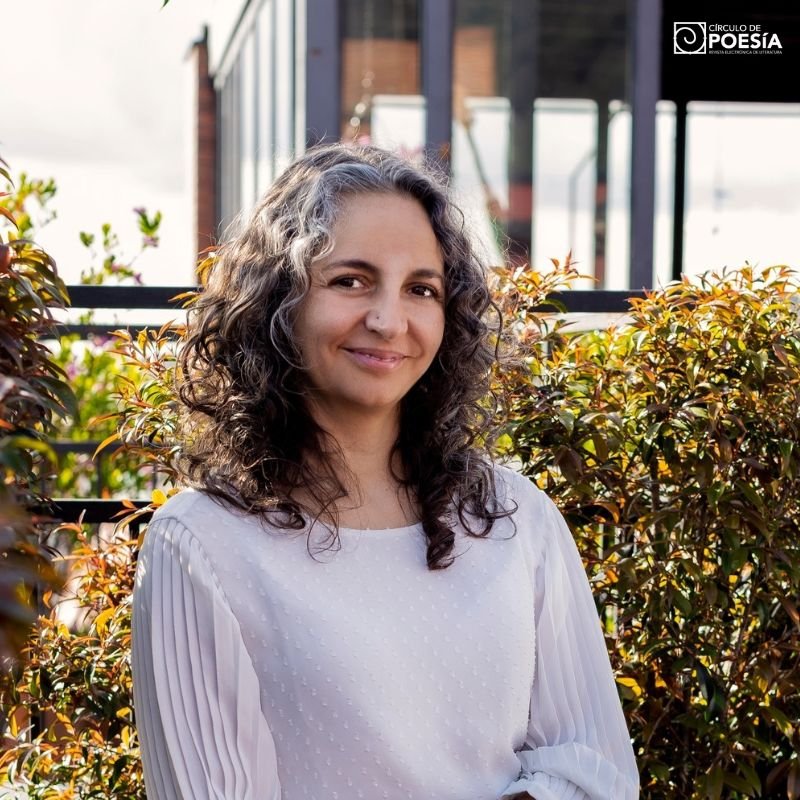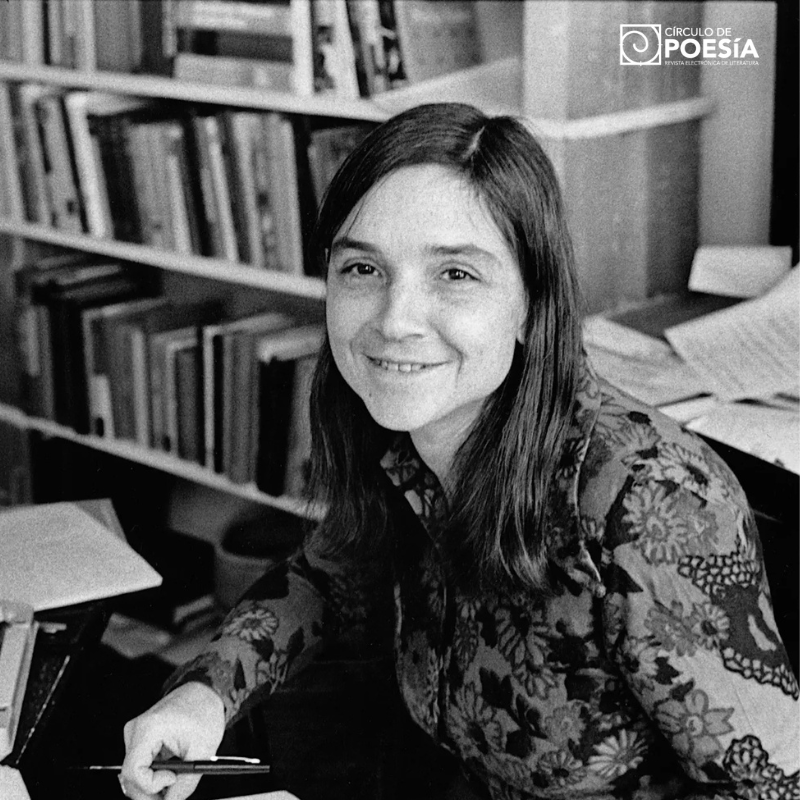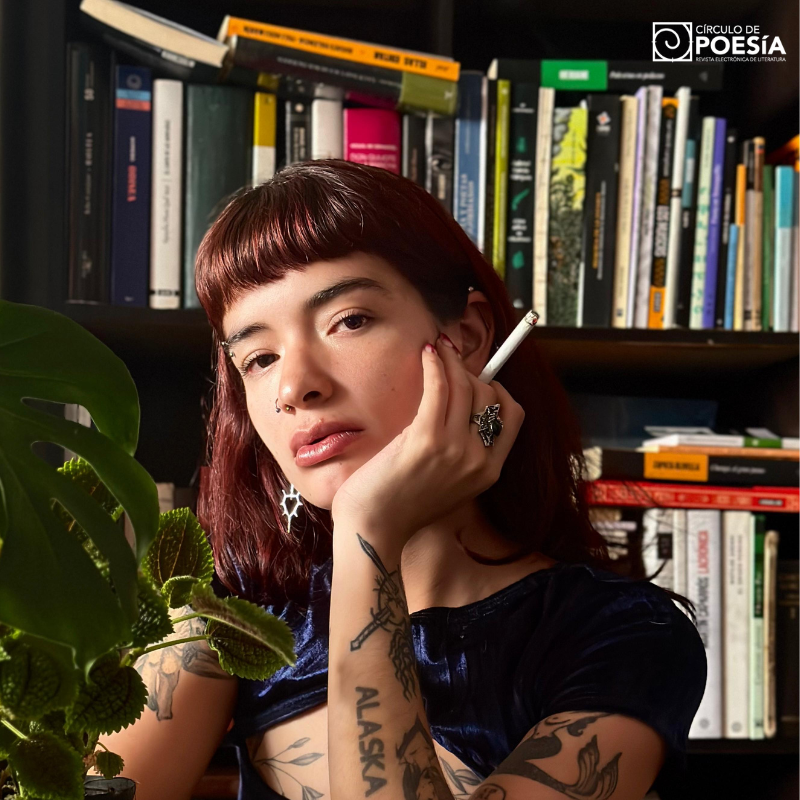Presentamos, en versión de Raúl Durán, tres poemas de Aracelis Girmay (Santa Ana, California, 1977). Ha publicado libros como Teeth (2007), Kingdom Animalia (2011) y The Black Maria (2016). Fue merecedora del Whiting Award for Poetry en 2015. Actualmente da clases en el Hampshire College.
El sueño
Anoche, toda la noche
el sueño, la madre
muerta, mi hermanita,
pequeña, su boca
sobre mi hombro
(gritando) como una mochila
cuando oyó la noticia,
y mi hermano escuchando
el estéreo. Aullé
como un coyote; yo.
Y vi la luz afuera
bajo la ventana, mi madre,
joven, jugando conmigo
sobre una piedra, la luz del día
cayéndonos. Yo era pequeña.
Una vieja y famosa mujer
hizo sus preguntas:
¿Quién escribió este sueño?
Quise saber.
Mi hermano pensó
que fue nuestra madre
quien lo escribió
cuando era vieja.
Ella no murió, pensó.
Pero yo sabía, y llamé abajo
a su cabeza algodonada, entonces, cuando
no podía ver o escucharme.
Nunca me habría escuchado.
No era capaz de hablar
entonces, aún, y ella había muerto,
después de todo, y la madre
a la que llamo para contarle el sueño
nunca recordará, después de todo
no había nacido entonces, aún,
y debía morir la primera madre
antes de que pudiese usar su nombre
y alimentar a sus hijos.
The Dream
Last night, all night
the dream, the dead
mother, my small sister,
tiny, her mouth
over my shoulder
(screaming) like a knapsack
when she heard the news,
& my brother playing
the stereo. I howled
like the coyotes; myself.
& saw the light outside
below the window, my mother,
young, playing with me
at a rock, in some sunlight
falling over us. I was small.
An old & famous woman
asked her questions:
Who wrote this dream?
I wanted to know.
My brother thought
it was our mother
who wrote it
when she was old.
She did not die, he thought.
But I knew, & called down
to the cotton-head of her then, when
she could not see or hear me.
She would never hear me.
I was not capable of talking
then, yet, & she had died,
after all, & the mother
I call to tell the dream
will not remember, after all
she was not born then, yet,
& needed the first mother to die
before she could use her name
& feed her children.
Elegía
¿Qué hacer con el conocimiento
de que nuestra vida no está garantizada?
Tal vez un día toques la joven rama
de algo bello. Y crezca y crezca
a pesar de tus cumpleaños y tu acta de defunción,
y ensombrezca las cabezas de algo bello
o se vuelva útil para el nido. Sal
de tu casa entonces, creyendo esto.
Nada más importa.
Todo sobre nosotros es el tacto
de extraños y loros,
algunos humanos,
algunos no humanos.
Escúchame. Te digo
algo verdadero. Éste es el único reino.
El reino del tacto:
el tocar lo evanescente, cosas.
Elegy
What to do with this knowledge
that our living is not guaranteed?
Perhaps one day you touch the young branch
of something beautiful. & it grows & grows
despite your birthdays & the death certificate,
& it one day shades the heads of something beautiful
or makes itself useful to the nest. Walk out
of your house, then, believing in this.
Nothing else matters.
All above us is the touching
of strangers & parrots,
some of them human,
some of them not human.
Listen to me. I am telling you
a true thing. This is the only kingdom.
The kingdom of touching;
the touches of the disappearing, things.
Consideren las manos que escriben esta carta
a partir de Marina Wilson
Consideren las manos
que escriben esta carta.
La palma izquierda abierta contra el papel,
como hemos hecho antes, sobre mi corazón,
en paz o reverencia al mar,
algo bello
que vi una vez, sentí una vez: nieve cayendo
como arroz lanzado en boda de gigantes,
el más extraño de pájaros extraños, y consideren entonces
la mano derecha, y cómo es un puño
dentro del que un filoso utensilio,
similar al modo en que sostengo una pala,
las riendas del caballo, galopando, los mismos puños
que he visto en caminos a Limay y Estelí.
Por años, me he sentado de esta forma:
una mano abierta, una mano cerrada,
como el granjero que siembra y cosecha;
vendrá alimento de ese cultivo.
O, sí, es así como he bailado
con mi mano izquierda abierta en torno a un hombro,
mi mano derecha cerrada adentro
de otra mano, y cómo rezo,
rezo porque éste sea mi modo: dulce
obra aludida en la postura del cuerpo en su papel:
mano izquierda, mano derecha
como un ojo abierto, un ojo cerrado:
una mano abierta sobre una pequeña puerta,
la otra mano tocando, tocando.
Consider the Hands That Write This Letter
after Marina Wilson
Consider the hands
that write this letter.
Left palm pressed flat against paper,
as we have done before, over my heart,
in peace or reverence to the sea,
some beautiful thing
I saw once, felt once: snow falling
like rice flung from the giants’ wedding,
or strangest of strange birds. & consider, then,
the right hand, & how it is a fist,
within which a sharpened utensil,
similar to the way I’ve held a spade,
the horse’s reins, loping, the very fists
I’ve seen from roads through Limay & Estelí.
For years, I have come to sit this way:
one hand open, one hand closed,
like a farmer who puts down seeds & gathers up;
food will come from that farming.
Or, yes, it is like the way I’ve danced
with my left hand opened around a shoulder,
my right hand closed inside
of another hand. & how I pray,
I pray for this to be my way: sweet
work alluded to in the body’s position to its paper:
left hand, right hand
like an open eye, an eye closed:
one hand flat against the trapdoor,
the other hand knocking, knocking.





